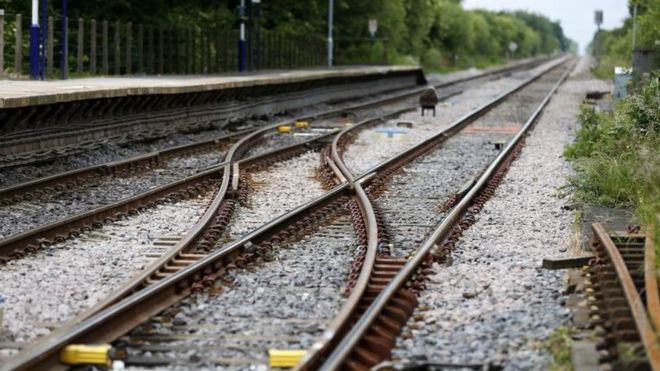Labour’s draft manifesto through a business lens

So how radical is Labour’s draft manifesto really?
On the face of it, it looks like the root and branch reversal of 40 years of government policy. But let’s take a moment to see how radical, how do-able, these proposals really are from a business, rather than a public finance, perspective.
Let’s start with the easy ones.
Renationalising the railways
This actually happens from time to time anyway. The East Coast Main Line spent several years in public ownership after it was handed back to the government by National Express in 2009, before being privatised again in 2015.
It performed pretty well in public hands. It paid nearly a billion pounds in fees to the government and still managed to make a profit for the Treasury, while carrying more passengers and getting good passenger satisfaction scores. So there is some evidence that repeating that exercise each time a current rail franchise expires could work.
However, freezing rail fares, extending free wifi, ending driver-only operated trains and improving disabled access would freeze income while increasing costs. It might be harder to replicate the relative success of the East Coast Main Line experiment with these additional pressures.
The track is already quasi-nationalised through Network Rail, and the government pays subsidies to the train operating companies of more than £3bn a year.
Of all the privatisations since Thatcher, this is probably considered one of the least effective in financial terms for the government. The question is whether passengers’ memories of British Rail are clear enough to make a comparison to their experience today.
Energy price caps
This is hardly a surprise item given a version of it was in the last Labour manifesto, and the Conservatives have committed to do much the same. The same criticisms over deterring investment and encouraging the withdrawal of cheaper fares for switchers apply to both parties.
- Labour’s draft election manifesto leaked
- At-a-glance: Draft manifesto
Now the trickier ones
Publicly-owned energy companies
The setting up of publicly-owned utilities in every region of the UK is a much more difficult exercise.
Although there is little detail, the government would essentially be starting from scratch in an industry that it hasn’t been involved in for decades.
Quizzed this morning about how this would work, the policy chief talked of setting up regional co-operatives, but where they would spring from and how they would be managed is not clear.
Nationalising National Grid
The cost of transporting gas and electricity across cables and through pipes makes up nearly a quarter of consumers’ energy bills. Some of that money goes to privately-owned National Grid, which last year made a profit of £3bn, although it no longer owns all of the UK gas transportation infrastructure. It also distributes gas and electricity in the United States and makes a much bigger profit margin here than it does there – a fact that has drawn heavy criticism from consumer groups.
Even if you agree that National Grid is charging the energy companies too much – to nationalise it you would presumably have to buy it back. Its current value is £38bn, but a lot of that is made up of its US business which presumably a Labour government wouldn’t want to buy!
The UK business is estimated to be worth around £25bn. A chunky purchase, but one that could quite easily financed in that it makes enough money to repay the interest on any money borrowed to buy it.
Pay caps
A proposal to cap pay for top earners at 20 times that of the lowest paid in an organisation is a radical one, and a throwback to the 1970s in the sense that that was the last time pay differentials were anything near that multiple.
Currently the average FTSE 100 boss earns around 150 times the amount his or her lowest paid employee makes.
Even companies seen as progressive would fail this new test. The chairman of the John Lewis Partnership, Charlie Mayfield, made around 75 times as much as his partners on the shop floor.
There is widespread outrage over high pay – even among some shareholders of private companies – and we can expect some action on this issue in the Tory manifesto.
I will leave proposals on NHS funding, tuition fees etc and the impact on the public purse to my more knowledgeable colleagues.
The real essence of this leaked document is that coursing through it is a simple idea. When it comes to doing just about anything – GOVERNMENT KNOWS BEST. That is an age-old political decision between the old left and old right.
The Conservatives have moved left with their market interventions and attack on business excess. With this document – Labour have moved quite a long way further left.
[“source-bbc”]
